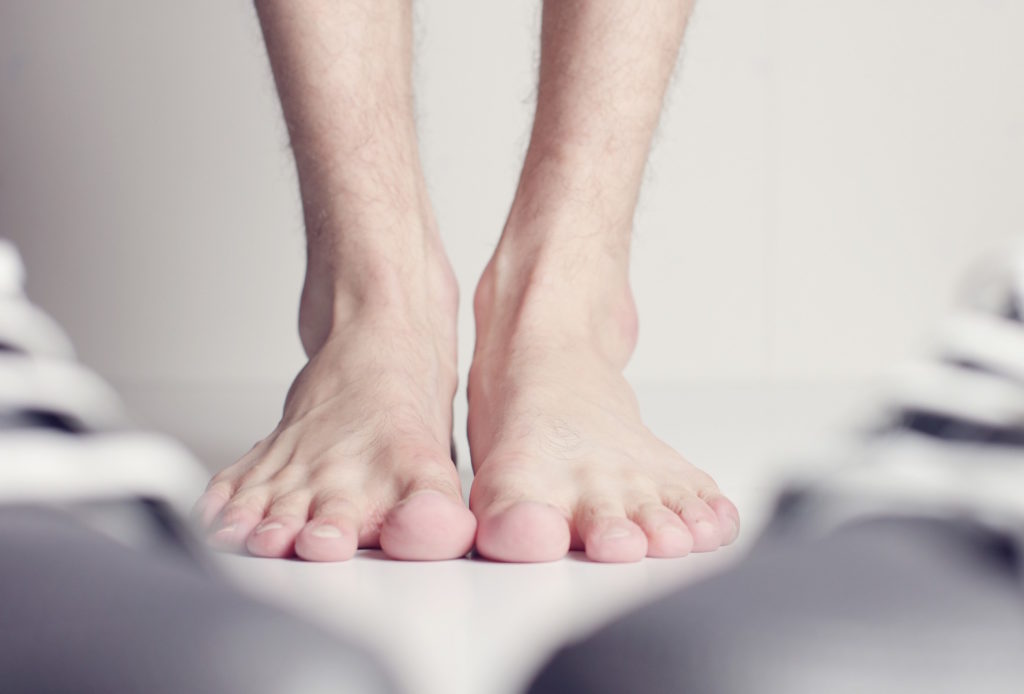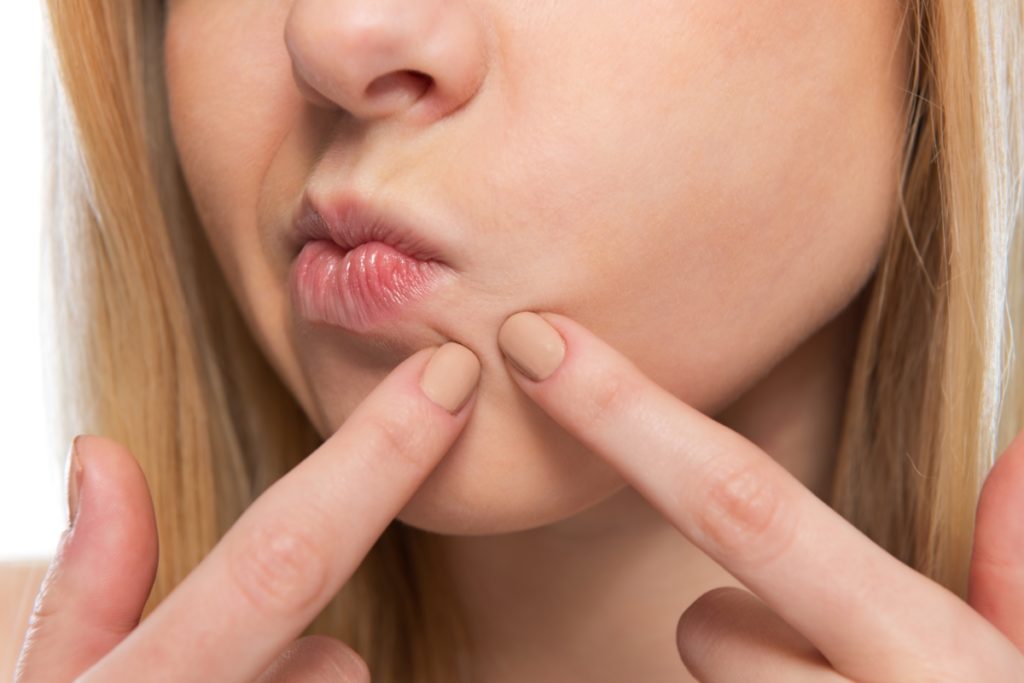We all have those questions. The ones we’d love to know the answers to but don’t want to ask. Well, to get you started in solving your (a-hem, embarrassing) skincare issues, we’ve asked them for you. Here’s what our doctors had to say.
1. What can I do about excessive sweating? It’s even ruining my shirts!
Most people don’t know how much a dermatologist can do to treat excessive sweating. If you’re ruining clothes or are embarrassed to lift your arms too high because of sweating, a dermatologist can give you three treatment options.
First, you can use prescription topical products. These contain aluminum chloride, which occludes sweat glands if applied correctly. So make sure your skin is dry and rub it in completely.
You can also take a pill that causes you not to sweat as much. It’s a safe, generic product, first created for indigestion.
Finally, Botox even works to treat sweating. You can get injections under the arms, in the palms, anywhere you don’t mind having a needle. It’s not covered by insurance and requires a high dosage, but it works very effectively.
2. I have warts in places warts shouldn’t be. What should I do?
Warts can be embarrassing, especially if they’re in your genital area. Misdiagnosed warts can also harm your relationships. For example, if you think it’s herpes, but you’re in a monogamous relationship, you may get questions and accusations about how you got it. Talk to your dermatologist so you know what you’re dealing with.
If you have a wart or sore in that area, it’s important to see your dermatologist for the right diagnosis.
3. How can I get rid of my foot odor?
Stinky feet can be embarrassing and ruin your shoes, but it’s an easy problem to fix. The odor comes from gram-negative bacteria. Those bacteria are easily treated with Loprox cream (or its generic version) prescribed by your dermatologist. The cream kills yeast, fungus, and bacteria. Once the bacteria are gone, so is the stench.
4. My dandruff is out of control. Can I get rid of it?
A flaking and scaling scalp can ruin your appearance. It gets all over your clothes, itches, and can form red, scaly patches on your scalp, behind and inside your ears, in your eyebrows, and around your nose. Why? It all comes from a yeast that lives on the oils in your skin and causes irritation.
We treat dandruff with a mild topical steroid. For the scalp, you’ll apply a steroid solution in the shower. On the skin, you’ll use a cream version. With the right treatment, we can get the dandruff under control.
5. My nails are growing a fungus. How do I treat it?
Nail fungus can be extremely embarrassing. If you just wait for the fungus area to grow out, it can take up to a year to cure it.
Nail fungus is treatable, but it takes dedication. We recommend the combination of oral and topical prescription medicines to use throughout the entire growth cycle of the nail until the fungus is gone completely. With regular use, the fungus will eventually disappear.
6. How can I get rid of the blackheads on my nose?
No one wants blackheads, especially on their nose. To treat blackheads, you need a product containing tretinoin. Tretinoin causes the skin to peel, and as you peel the skin back, you remove the blackhead plugs. As you physically unclog these pores, you’ll see an instant improvement in your skin.
If you still have deeper blackheads, see an aesthetician to have them extracted. They use a special tool that applies pressure to the skin to pop out the plugs. They may also recommend a mild chemical peel to exfoliate the skin and clear any remaining pore blockages.
7. What causes ingrown hairs?
Ingrown hairs aren’t only unsightly — they hurt. They occur when you cut your hair short and it digs back into the skin. Then you’re left with inflamed, red skin.
Treatment is simple. If you leave the hair longer, you shouldn’t get as many ingrown hairs. Men, consider using a trimmer rather than a razor that shaves so close. But if you want to keep the hair short, regularly use a benzoyl peroxide wash to disinfect the area. It reduces the bacteria causing inflammation and makes ingrown hairs less likely.
8. I’m an adult, but I still have a problem with acne. What’s the remedy?
Female acne can pop up at certain stages of the menstrual cycle. This acne tells us you’re sensitive to hormones, particularly testosterone. It doesn’t mean your hormone levels are abnormal; you’re just reacting to the hormone changes during that time of the month. The testosterone dries the oil, causing it to plug pores more easily, resulting in bumps. It’s a condition that a dermatologist can easily treat.
Patients may also see acne if they’re on testosterone replacement therapy. To fix it, we just reduce the amount of testosterone they receive.
If neither of these causes explains your acne, visit your dermatologist. There are many acne treatment options available to clear your skin.
9. I have stretch marks and am embarrassed to wear shorts or a swimsuit. Will anything make them go away?
Stretch marks are essentially scars. They’re best treated with a fractionated laser. You’ll see great improvement after a few treatments, as they break up the scars. Check out this article for more information.
10. What are those rough, red bumps on the back of my arms and legs?
Those pesky little bumps are usually Keratosis pilaris. There’s no cure to make them disappear forever, but we can keep them away with consistent treatment. We prescribe a lotion containing lactic acid or urea that smooths the bumps. As long as you use it regularly, the bumps should disappear. But they tend to come back if you discontinue use.
11. I’m a woman with excessive facial hair. Is there something I can do to reduce it?
Some women are more prone to growing facial hair because they’re sensitive to testosterone. It doesn’t mean they have more testosterone than usual, but rather their body responds to it with hair growth. A dermatologist can help you find a treatment that decreases your sensitivity to testosterone (which will also decrease your hair growth).
12. I’ve got little skin flaps. What are they and how do I get them off?
These flappy bumps are called skin tags. They’re not harmful, but if they bother you, your dermatologist can remove them painlessly. They’ll apply a numbing cream and remove the flaps without causing them to bleed excessively. If you try to clip them off at home, they can hurt and bleed like crazy.
Never hesitate to visit your dermatologist, even if the issue embarrasses you. Trust us, we’ve heard it already and you’re not the only one! So, if you’re ready to fix one of these issues (or have something else on your mind), call and schedule a consultation today.

Dr. R. Todd Plott is a board-certified dermatologist in Coppell, Keller, and Saginaw, TX. His specialization and professional interests include treating patients suffering with acne, identifying and solving complex skin conditions such as psoriasis, rosacea, atopic dermatitis, and identifying and treating all types of skin cancers. In his spare time, Dr. Plott enjoys cycling, traveling with his wife, and spending time with his children and new grandson.
Learn more about Dr. Plott.



